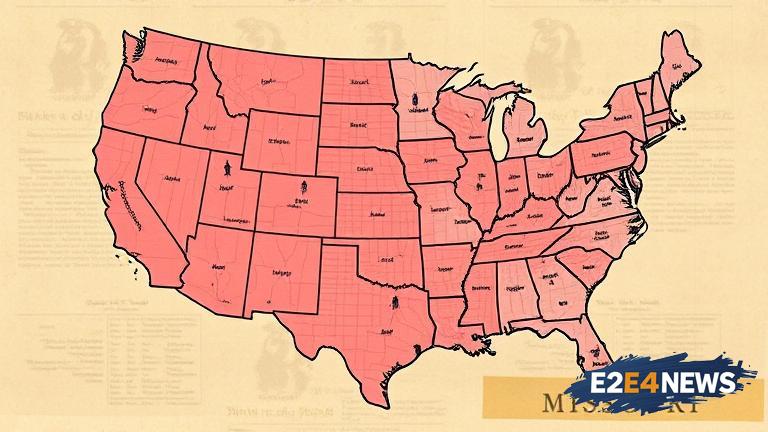The redistricting process is underway in multiple states across the US, with Missouri being one of the latest to join the fray. This comes as no surprise, given the significance of redrawing congressional maps in shaping the country’s political future. The process, which occurs every decade following the census, aims to ensure that each district has roughly the same number of people, thereby maintaining the integrity of the democratic process. However, the task is often fraught with controversy, as politicians and interest groups jockey for position and influence. In Missouri, the state legislature is responsible for redrawing the maps, which could potentially lead to changes in the state’s eight congressional districts. The stakes are high, with the potential for the new maps to impact the balance of power in the US House of Representatives. Other states, including Texas, Florida, and North Carolina, are also in the process of redrawing their congressional maps, setting the stage for a potentially dramatic shift in the national political landscape. The redistricting process is complex and often contentious, with competing interests and ideologies vying for dominance. The use of advanced technology and data analysis has become increasingly prevalent in the process, allowing for more precise and targeted map-drawing. However, this has also raised concerns about the potential for gerrymandering, where maps are manipulated for partisan gain. The Supreme Court has weighed in on the issue, ruling that federal courts have no role in policing partisan gerrymandering, leaving the matter to the states and Congress to resolve. Despite the challenges and controversies, the redistricting process is a critical component of American democracy, ensuring that the voices of citizens are represented in the halls of power. As the process unfolds, it will be closely watched by politicians, pundits, and citizens alike, all of whom will be eager to see how the new maps will shape the future of American politics. The impact of the redistricting process will be felt far beyond the states involved, with potential implications for the balance of power in Congress and the outcome of future elections. The debate over redistricting is likely to continue, with arguments over the role of technology, the impact of gerrymandering, and the need for reform. Ultimately, the redistricting process will play a significant role in shaping the course of American politics, making it an issue of paramount importance for citizens and policymakers alike. The redistricting process in Missouri and other states will be closely monitored, with many awaiting the outcome and its potential impact on the political landscape. The use of data and technology will continue to evolve, potentially leading to more efficient and effective map-drawing. However, the risk of gerrymandering and the need for reform will remain a pressing concern, requiring careful consideration and action from policymakers. As the redistricting process continues, it is essential to prioritize fairness, transparency, and accountability, ensuring that the voices of all citizens are represented and heard. The future of American democracy depends on it, making the redistricting process a critical issue that demands attention and engagement from citizens and policymakers alike. The redistricting process is a complex and multifaceted issue, with far-reaching implications for the future of American politics. It is essential to approach the process with caution and careful consideration, prioritizing the principles of fairness, transparency, and accountability. By doing so, we can ensure that the redistricting process serves the interests of all citizens, rather than just a select few. The debate over redistricting will continue, with arguments over the role of technology, the impact of gerrymandering, and the need for reform. However, by prioritizing the principles of fairness and transparency, we can create a more just and equitable system, one that truly represents the voices and interests of all citizens.
